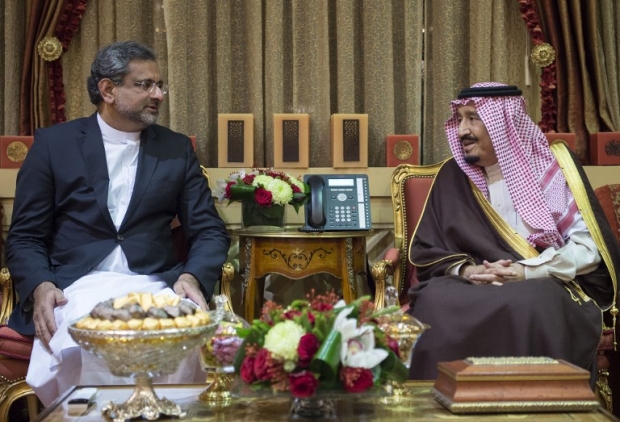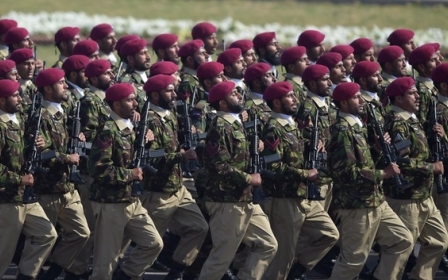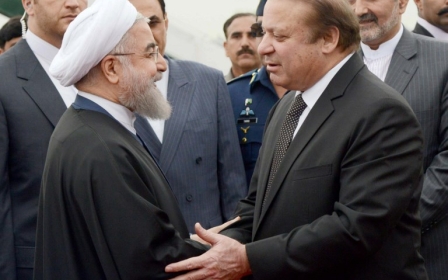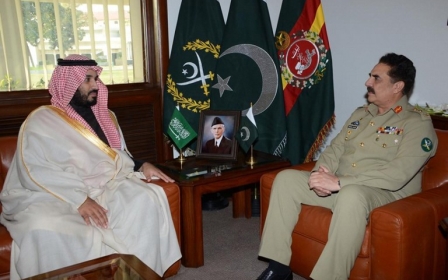Pakistan's dilemma: Can Imran Khan afford to tilt towards Iran?
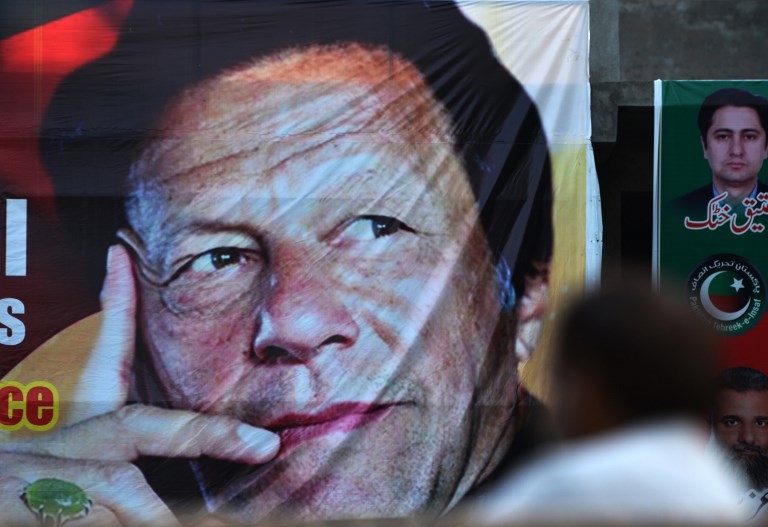
Imran Khan has won the Pakistani election, but what can we expect from the cricketer-turned-politician on foreign policy?
Khan is a populist whose campaign focused on domestic policy and the fight against corruption. Pakistan has lacked a formative foreign policy on the Middle East for quite some time. Can Khan deliver where others have failed?
One of the more striking elements of Imran Khan's message on foreign policy is his overtly pro-Iran statements
- Michael Kugelman, the Wilson Center
The public captured glimpses of his international stance during his televised address to the nation, in which he weighed in on the Saudi-Iran rivalry: "We want to improve ties with Iran. Saudi Arabia is a friend who has always stood by us in difficult times. Our aim will be that whatever we can do for conciliation in the Middle East, we want to play that role. Those tensions, that fight, between neighbours, we will try to bring them together."
Balancing act
The reality on the ground, however, is quite different, with Pakistan effectively caught in a tug of war between Tehran and Riyadh. “In many ways, Pakistan has been trying to strike a balance for a long time, and it’s a difficult balancing act,” journalist and analyst James Dorsey said. “The Saudi influence is not just governmental but also societal. Pakistan is, by definition, in a very difficult place.”
Hundreds of thousands of Pakistanis have taken work in Saudi Arabia’s vast construction industry and other low-paid service jobs. Historically, Pakistan has a close association with the kingdom, cultivated by the British and the Americans. Pakistan is viewed as overly subservient, with a high number of bailouts provided by the kingdom, in addition to investing in its nuclear-arms projects.
Pakistani politics are dependent on the country's military establishment, which lobbied for Khan’s victory and is allied firmly with Saudi Arabia
How Pakistan may establish some sort of equilibrium today between two powerful states hinges on its diplomatic manoeuvrability. Saudi and UAE officials have congratulated Khan on his victory, indicating that Pakistan - with its strategic position bordering Iran - remains important to the Gulf states. Iran, meanwhile, has sent an open letter requesting enhanced cooperation with Khan’s new government.
"One of the more striking elements of Imran Khan's message on foreign policy is his overtly pro-Iran statements," said Michael Kugelman, the Wilson Center’s deputy director and senior associate for South Asia. "It's been quite some time since a top Pakistani leader has expressed such sympathies to Iran."
Arif Rafiq, a non-resident fellow at the Middle East Institute, noted that Khan has also been very vocal against joining the Saudi-led Yemen war.
Bilateral ties
Pakistan is on track to seek a $12bn International Monetary Fund bailout, which the US has already warned against. The situation will only become more complicated if Pakistan is seen to be establishing stronger bilateral relations with Iran.
Saudi loans and investment are crucial amid the precarious state of Pakistan’s economy, Rafiq said. The Saudi-based Islamic Development Bank recently activated its $4.5bn oil financing facility for Pakistan; Rafiq describes Pakistan as being “on thin ice, and the Saudi-backed loan [is] essential”. Dorsey, however, says such loans are “band-aid solutions, which come with a heavy political price tag”.
Given Pakistan’s failing economy, is it even possible for Khan to remain politically neutral? Pakistani politics are dependent on the country's military establishment, which lobbied for Khan’s victory and is allied firmly with Saudi Arabia. A retired army chief has agreed to head the "Muslim NATO", a Saudi-led military alliance.
At the same time, there are claims that Saudi Arabia has stepped up funding for religious seminaries in Balochistan that allegedly serve as havens for anti-Iran fighters.
Military establishment
The measure to counter the anti-Shia insurgency in the border areas of Balochistan is seen by many to have tacit approval of the military establishment, considered to be the real decision-maker on foreign policy.
According to Rafiq, Pakistan is caught between the "two heavyweights of the Muslim world". It must be decisive and realise its strong strategic position.
“When push comes to shove, Khan, like all his predecessors, as well as the army, will quietly remain in the Saudi camp,” Kugelman said.
As the US continues to unpick the Iran deal, for now, Khan’s best move could be to preserve the status quo.
- Suddaf Chaudry is a freelance Journalist and writer covering the Middle East and South Asia.
The views expressed in this article belong to the authors and do not necessarily reflect the editorial policy of Middle East Eye.
Photo: A poster of Pakistani cricketer-turned-politician, Imran Khan, is seen in Islamabad on 30 July 2018 (AFP)
Middle East Eye propose une couverture et une analyse indépendantes et incomparables du Moyen-Orient, de l’Afrique du Nord et d’autres régions du monde. Pour en savoir plus sur la reprise de ce contenu et les frais qui s’appliquent, veuillez remplir ce formulaire [en anglais]. Pour en savoir plus sur MEE, cliquez ici [en anglais].



